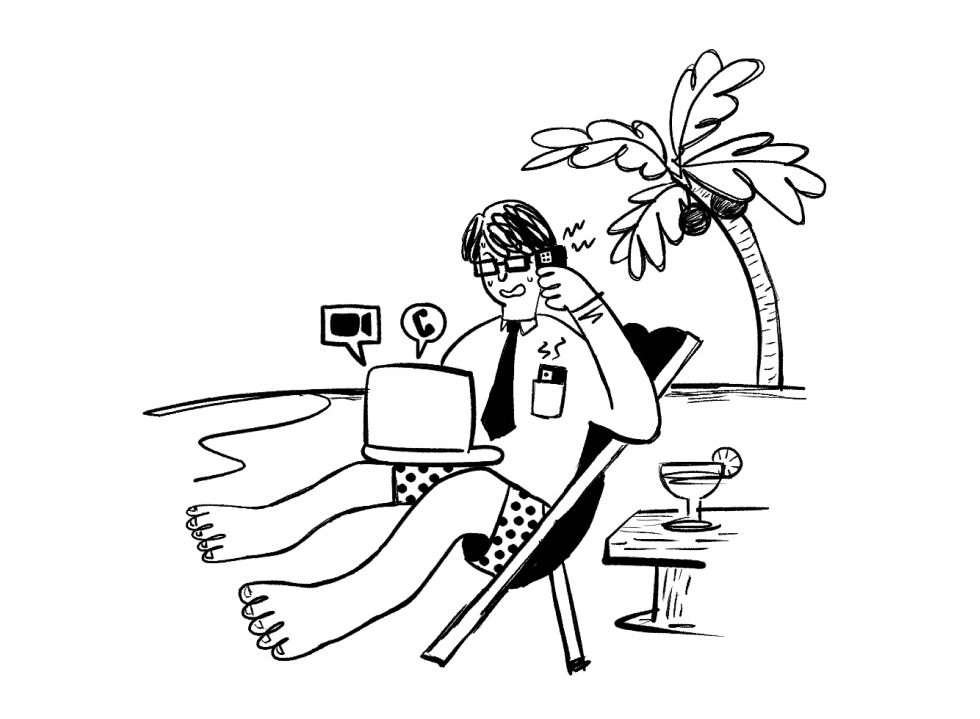The adage of “don’t mix work and pleasure” during this time of pandemic has never sounded so… old. After more than a year into the effects of the virus, Jakartans, in particular, have truly evolved to be adaptable in hybrid working environments. Not that we ever needed a push anyway. Even in pre-pandemic, coffee shops and co-working spaces have always been the go-to workspace instead of the office.
It shouldn’t be surprising that it didn’t take long before WFH (Work From Home) lost its steam and was replaced with WFB (Work From Bali). For the past year, I’ve seen a great exodus of friends and friends of friends flee to Bali in search of an alternative environment for work. Ah, the promise of sun, clean air and beaches, as opposed to the monotonous and stressful work culture of Jakarta, I can definitely see the appeal.
Although I did have my doubts about the idea of WFB, I was quite certain it would at least be an improvement from my work set-up at the time. After all, I was either chained to my cluttered desk at home, fielding back-to-back zoom meetings or spending my work hours in a cold empty office. And so for a week in October, I set off to the Island of the Gods for the sought-after WFB pilgrimage.
Turns out, it’s the same scenario in a different setting. Despite picking a prime location close to the beach, I was stuck in my room enduring endless zoom meetings and fielding Slack messages during the day. And by the time I was done, the sun had set and I had takeout for dinner in the company of Netflix. “I visit Bali for its nighttime vibe,” said no one ever.
Perhaps I’m doing it wrong. Is one week even eligible to be coined WFB? Shouldn’t that be filed under vacation instead? Then again, why the heck am I working when I’m on holiday? Does it even make sense to have an itinerary of places to go when you’re on WFB? Is productivity a barometer for WFB? Hence, the never-ending internal dialogue that I struggled to comprehend.
The idea of WFB, it turns out, is so vague. What I did essentially was work on a holiday trip, trying to mix work and pleasure, but the latter was mostly absent. Maybe it would make more sense to call it WFB when I’m in Bali for months instead of a couple of weeks. But then, would that still fall under WFB, or would you get away with saying you’re based in Bali at that point? How the digital nomads do it, I’ll never understand. In the end, I couldn’t wait to return to Jakarta, to the conveniences of a big city (and the ease of cashless payment wherever I go).
So what’s the moral of the story? Curse and yell at me all you want, but WFB is really just a concept. What we’re really after in this era of highly competitive and fast-paced lifestyle, after all, is work-life balance. And WFB is a manifestation of our misguided delusion that the holy grail exists in Bali. Of course, work-life balance can exist in Bali. In fact, once you’ve subtracted the romanticisation commonly associated with it, it can exist anywhere (well, probably not in areas with zero internet coverage).
Thus, after the exhausting WFB trip, I find myself totally at home in the comfort of my tiny cluttered desk and making face-to-face conversations with my colleagues in our cold empty office.







